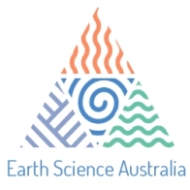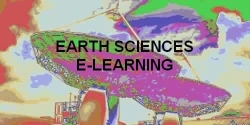Why Earth Science?
Why Earth Science?
We are all citizens of the earth.
We all benefit from earth
science.
We need to be informed citizens.
Earth Science skills
become life skills.
Quote
We are all citizens of the earth.
Nearly everything we do each day is connected in some way to Earth: to its land, oceans, atmosphere, plants, and animals. The food we eat, the water we drink, our homes and offices, the clothes we wear, the energy we use, and the air we breathe are all grown in, taken from, surround, or move through the planet. By 2025, eight billion people will live on Earth. If we are to continue extracting resources to maintain a high quality of life, then we, as individuals and citizens, need to know more about our planet — its processes, its resources, and its environment. And only through Earth science education can students understand and appreciate our complex planet. To ensure a scientifically literate society, one that maintains wise stewardship of Earth’s precious resources,Earth science should be:
- Included as part of the science curriculum at all grade levels
- Offered as a core credit science course for high school graduation
- Assessed through mandated science tests and exit exams.
The future of Earth science literacy — indeed, the future itself — lies in your hands.
We all benefit from earth science.
Our lives and civilization depend upon how we understand and manage our planet — Earth processes affect us all. Weather patterns influence the availability of water resources and the potential for forest fires; earthquakes, volcanic eruptions, hurricanes, and floods can kill large numbers of people and cause millions or even billions of dollars in property damage. Just as Earth systems directly affect each of us, we — as individuals, communities and nations — affect our planet. Expanding technologies and growing populations increase demand on natural resources. As we extract and use these resources, we impact Earth today, which will in turn impact those who come after us. To enhance our stewardship of the environment, we must proceed into the future with a sound understanding of Earth systems.Earth science empowers us to think globally and act locally — to make sound decisions about issues important in our lives as individuals and citizens. People who understand how Earth systems work can make informed decisions about where to buy or build a home out of harm’s way. They can debate and resolve issues surrounding clean water, urban planning and development, national security, global climate change, and the use and management of natural resources. An informed society, conscious of our complex relationships with our planet, recognizes the importance of and insists on Earth science education at all grade levels — elementary, secondary, and adult education. When we emphasize Earth science education, everyone benefits.
We need to be informed citizens
If we intend to live on — and with — this planet, we truly need to understand how it works, and to understand the interactions of the many components that make up the Earth. The Earth sciences provide an integrated and interdisciplinary approach to a true understanding of our planet. Earth science includes and applies knowledge from biology, chemistry, physics, ecology, and mathematics to tackle complex interdisciplinary issues. Earth science education also improves critical thinking skills. It offers a historical perspective and improves our ability to predict future events. To understand Earth processes that affect us now and tomorrow, geoscientists look for evidence of what happened in the past. This connects students to the past, as well as challenging them to think about the future.Earth science poses questions that are exciting as well as practical to children and adults alike: Why are some places prone to earthquakes? Why is the beach eroding and what can we do about it? Why isn’t a floodplain a good location to build a house? Where will we get the fuel to power our cars and planes in the future? Where will we get fresh water to drink? How can I help to protect the environment? Earth science problems and issues are ideally suited for an inquirybased education approach — an educational process that most closely resembles the reality of scientific endeavor.
Earth Science skills become life skills.
The role of Earth science in meeting society’s needs continues to grow in importance. Earth science develops skills that help students become better problem solvers, including three-dimensional analysis and comprehension of time and scale. Earth scientists use these skills to ensure a supply of clean water, explore for oil, gas, and coal, map the oceans, track severe weather, and discover the Earth materials we need to build our homes and roads, and the minerals and nutrients we need to farm the land. Earth scientists work for a wide range of organizations, including petroleum companies, environmental firms, mining companies, and construction companies. They work in local, state, and national government agencies and teach in our schools, colleges, and universities. Earth scientists also work in non-traditional industries such as telecommunications and financial planning, assisting their organizations to address Earth-related issues that affect their activities.A Masters Degree is now the standard professional degree for pursuing a career as an Earth scientist. However, training in the Earth sciences builds a foundation for work in other fields, and nearly half of those graduating with Earth science degrees establish careers in fields as varied as engineering, law, systems analysis, and financial management. Earth science provides a strong background for many career paths and instills an understanding of how the Earth system influences the many and varied aspects of human activity. However, many students graduate from high school unaware of the contributions that Earth scientists make to society and the unique problem solving skills that Earth science instills. We must make Earth science education a priority at all levels if we, as a society, are to meet the increasing demands of the future.
Quote:
“There hasn’t been a moment when I had the chance to look down on our planet from orbit when I haven’t been amazed at how geology has played a significant role in the development of humankind.”
Dr. James F. Reilly, Jr., NASA Astronaut/ Geologist, reflecting on his experience working at the International Space Station.

